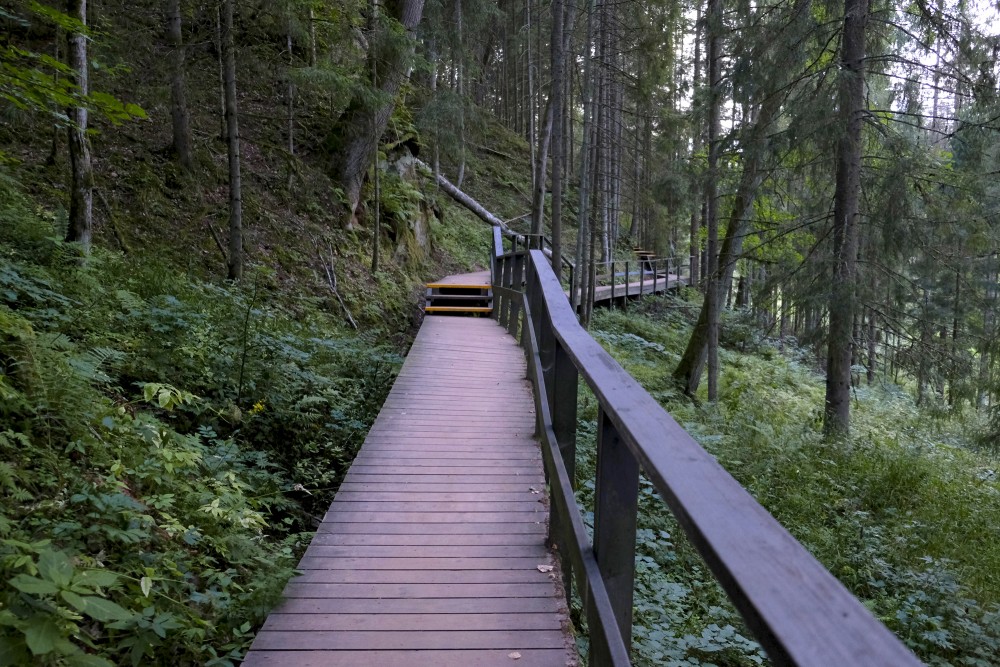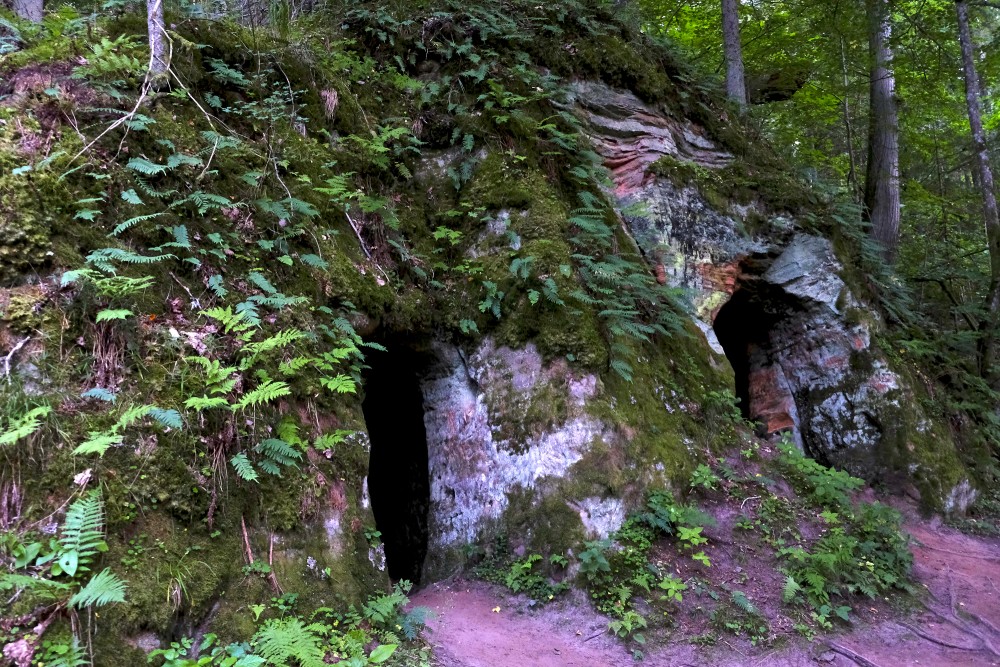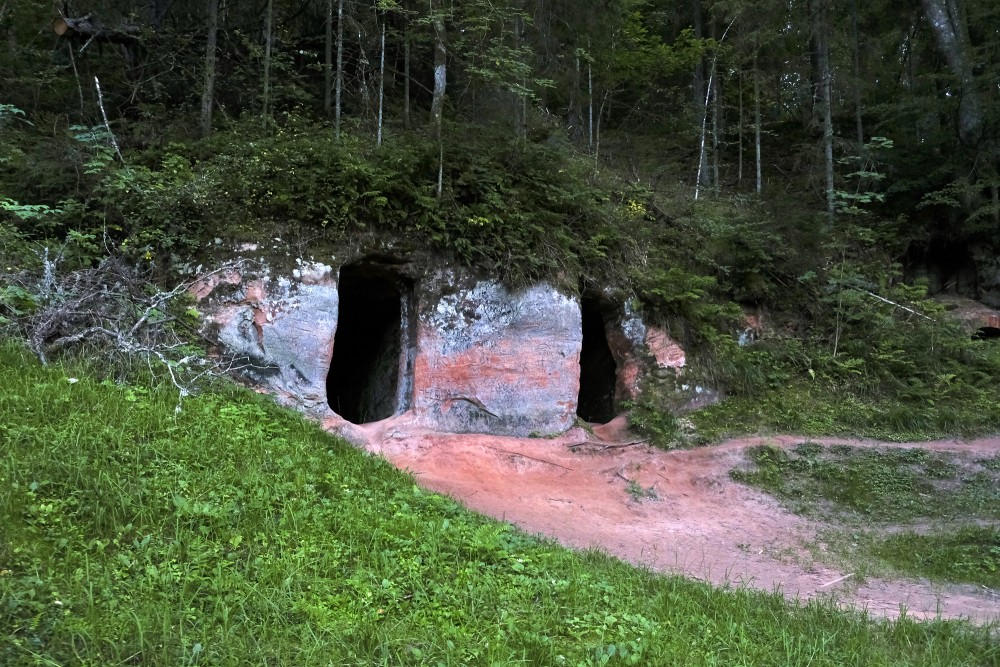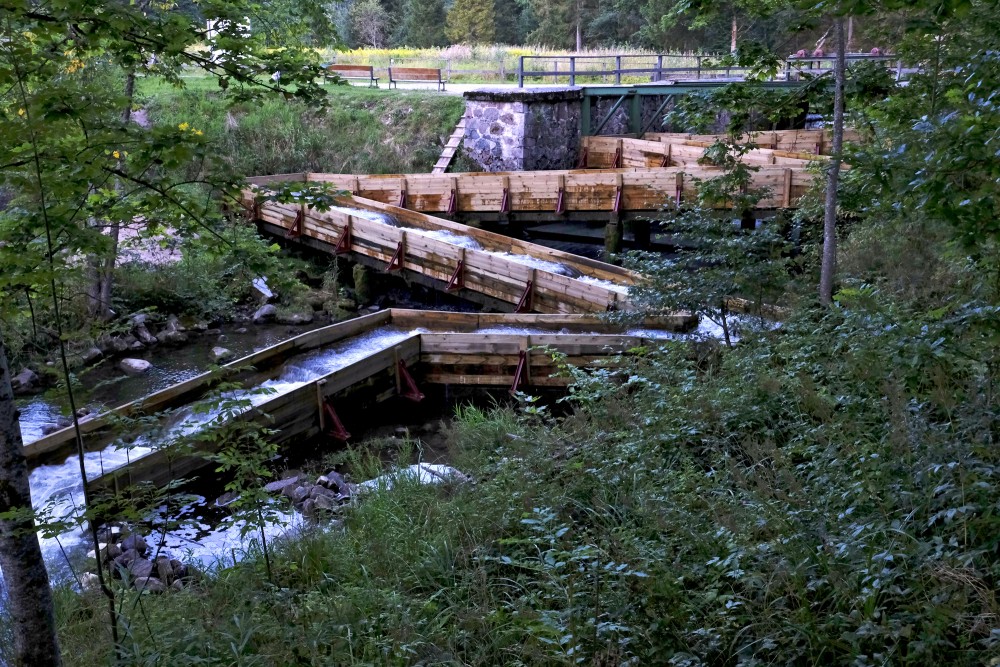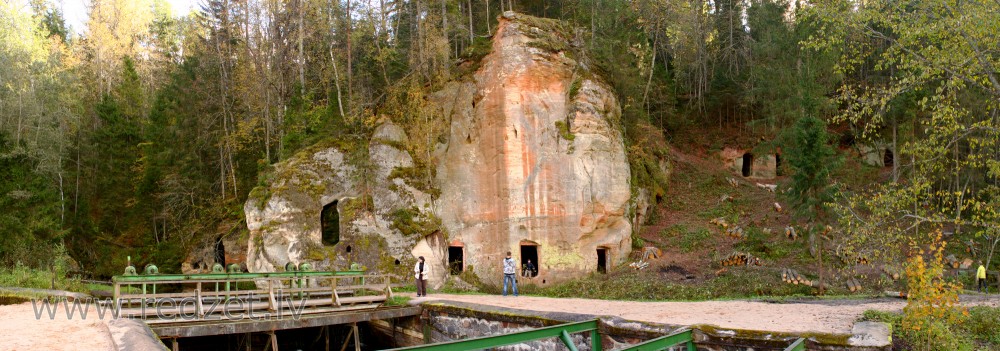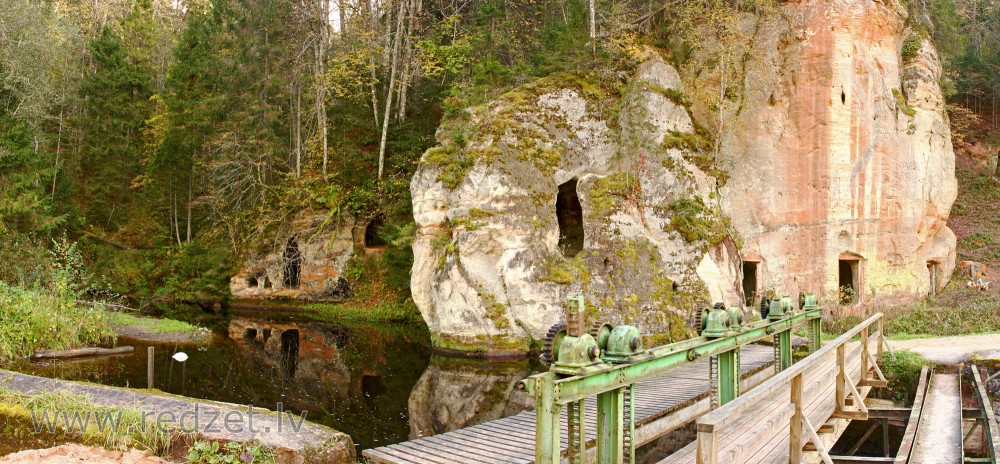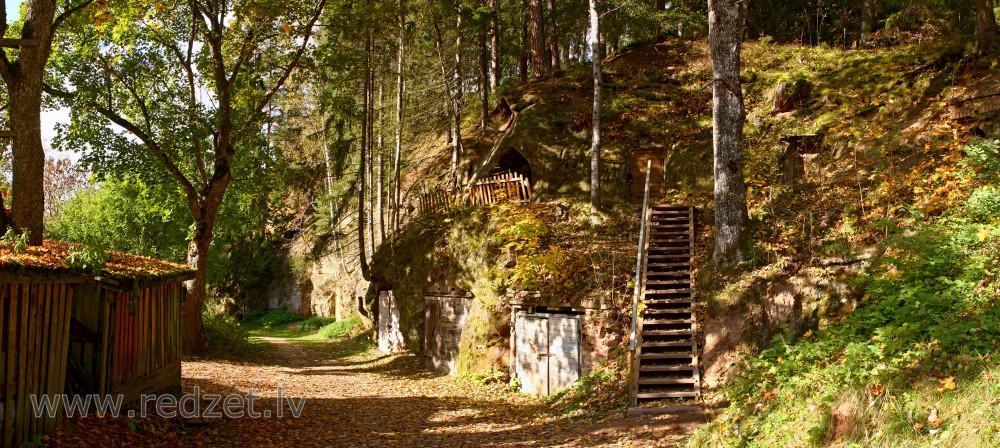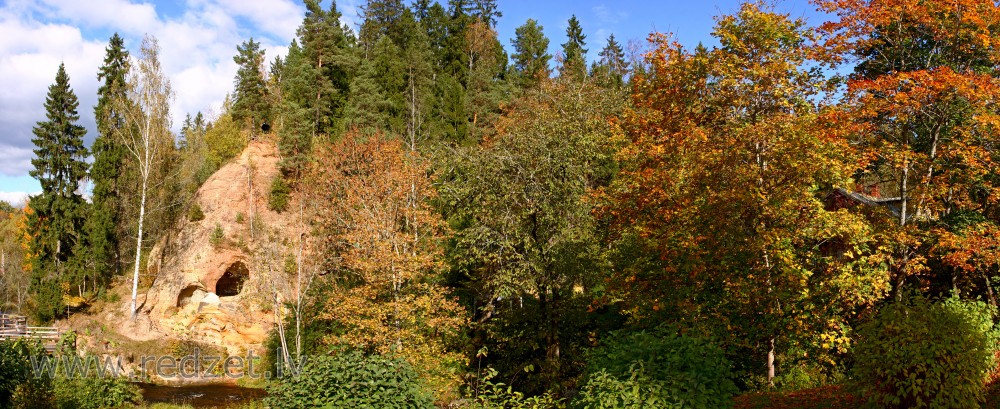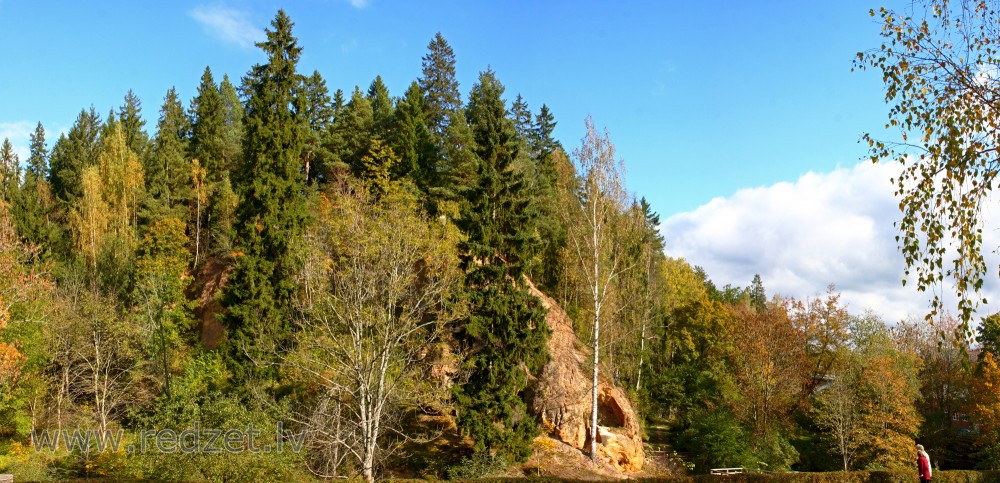Līgatne Town, Latvia
Līgatne (German: Ligat) is a town on the Gauja River, in Latvia. The village of Līgatne was built around the paper mill, still extant, on the River Līgatne in the 19th century.
| Līgatne | |
| Town | |
| Country | Latvia |
| Municipality | Cēsis Municipality |
| Town privileges | 1993 |
| Area: | 7.1 km2 (2.7 sq mi) |
| Population (2022): | 1011 |
| • Density | 140/km2 (370/sq mi) |
| Postal code | LV-4110 |
| Area code | +371 641 |
| Website | ligatne.lv |
Līgatne Nature Trails
The reserve known as the Līgatne Nature Trails is also located here, in the Gauja National Park, in the forest on the left bank of the Gauja River downstream from the paper mill. There are extensive paths through the nature reserve both for walking and for cycling, and there is a separate route for cars. There are also facilities for horse-riding and camping.
The reserve was set up in 1975 for the protection and display of the diversity of species, both plant and animal, which are characteristic of Latvia.
The animals here have been rescued from all over Latvia, either because they were injured, or because they had been tamed and could not survive on their own in the wild. The reserve contains bear, lynx, elk, European bison, roe deer and red deer.
The Gauja river valley contains distinctive geological formations, forests and meadow plants. Particularly significant places are Jumpraviezis rock, Katriniezis rock, Gudu cliffs and one of the country's rare sandstone canyons: Paparzu Glen ("Fern Glen"), known for its ferns.
Ligatne has numerous caves in vertical sandstone banks, that were dug as cellars for paper mill workers in tsarist time.
Nearby places of interest
- Ferry across the Gauja River (closed in winter).
- Līgatne village, with peculiar 19th century wooden architecture (30 unique row dwelling houses for paper mill workers).
- Līgatne paper mill, in operation since 1816.
- Zvartes rock, forest trail and Witches' Meadow on the banks of the Amata River.
- Kempji village church and water mill.
- Skalupe nature trails.
- The Park of Vienkoci.












